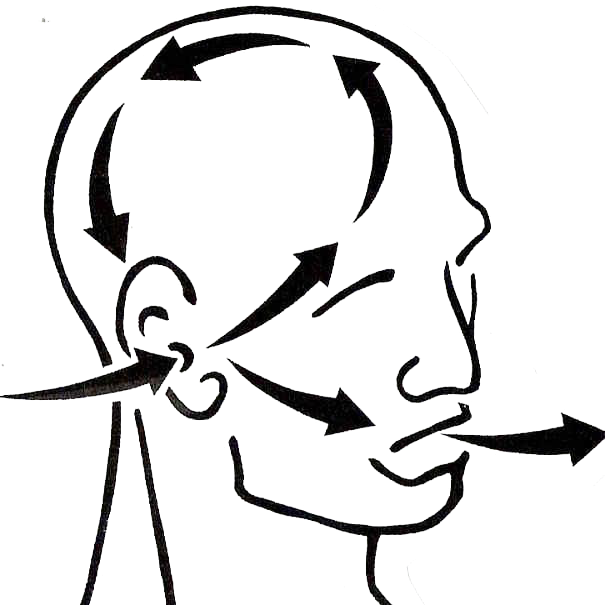“It is a rule up with which we should not put.” (Winston Churchill)
An example of an arbitrary linguistic rule: Do not end a clause or sentence, declarative or interrogative, with a preposition. (Yes, it’s hard to put up with!!).
The thing about human language is that it is able to create a paradox out of a contradiction, with words spoken and in a minority of cases, written. The spoken always precedes the written in the acquisition of a native language, i.e., a mother tongue.
Let’s consider the following:
Baby is born.
Baby observes the language of her environment as per the care-givers’ dialect without whom she would not be able to survive. The need to express gratitude and understanding of the world compels the new-born human being to acquire a dialect of the language that is surrounding her:
- L1 = First Language (1st dialect)
- No written forms involved
Not until later, after years of observing discourse and practicing single, then multiple oral phrases (2 or more words) to verbalize pleasure and other emotions, will the written be introduced (IF there is a written form).
The process is NOT arbitrary but rather, absolute. It’s the same with the development of motor skills for a newborn: Roll over, sit up, crawl, stand and balance, take steps, walk, jump, and run. It’s biological. It’s natural. It’s absolute.
NOTE! Most languages in the world today do NOT have a written form and they are just and equally complex grammatically as those that do. That means in no uncertain terms that the written form is an arbitrary (non-absolute) system that has NOTHING to do with the acquisition and learning of a language. Any attempt to acquire a language via the written form is doomed to fail definitively.
I don’t know what it’s like to be confined to one language but I can empathize nonetheless. (Multicultural Linguist)
The thing about language that I like the best is that it is honest. It cannot bullshit. Don’t get me wrong: Dishonesty, fraud, abusive manipulation and coercion is rampant in language. The honesty about language is that one cannot state and confirm that one “speaks” a language without actually being able to speak it. One can lie about it but the verification, the veracity involved can be ascertained within minutes by a few simple questions asked by a fluent speaker of the purported language.
Another thing about language that is remarkable is that no one speaks a language. Every person speaks a variation of a language: An idiolect of a dialect is an individuated version (dialect) of a language, which, in itself remains an abstraction.
Yet another wonderfully interesting aspect is that language, as a tool in and of a culture, transmits the conscious and subconscious feelings and attitudes of the members of a collective in a culture; and thereby language emits, transmits, advocates for and promotes multicultural ideologies about “how” life should be led in a given community. Rules, protocol, and ideologies are all embedded in a language.
When asked these questions:
- Is it possible to live life normally without language?
- Is it possible to think of any scenario without using language?
- Does language precede thought or does it follow thought?
The following answers pop up:
- No.
- No.
- Chicken~Egg~Chicken
The notion that language can be dis-associated from life, as in the ability to create instrumental, non-vocal music is a notion that is arbitrarily contrived and has NO foundation in absoluteness.
It takes a dialect of a language to even have these thoughts and questions. It takes language to respond to these ideas.
The need and existence of language is absolute and is inextricably linked to humanity. How language manifests itself is arbitrary but the need for language to manifest itself is not.
“When we study human language, we are approaching what some might call the ‘human essence’, the distinctive qualities of mind that are, so far as we know, unique to man [and woman].” (Noam Chomsky)
The thing about language includes the idea that allows us to delve into illusionary visions and create realities out of non-reality, as in Virtual Reality (VR). And today, the “reality” of virtuality is at the threshold of permanently creating what is presently coined (by PMHM) as Real Virtuality (RV):
VR has been around for a long time; it is found in pictographs, ideographs, and graphemic writing systems, for instance. With the advancement of technology, the audio and televised versions have come along and have been manifested definitively into human reality. And just like language, which is always in dynamic motion, stagnant manifestation of technological advancement is not part of the protocol we humans have arbitrarily designed to further our species on this planet, and in this vast, Infinite Vniverse. Consequently, VR has been replaced by RV. And, of course, LANGUAGE is at the foundation of it all.
For further discussion and explication, please contact TESOL-EDU Services.
Peter Maximilian HM
Multicultural Linguist &
International Educator
